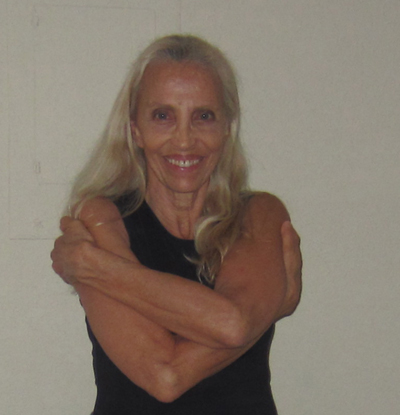Homeless: How We Can Help
HOMELESS – HOW WE CAN HELP ~ ISSUE 207 ~ APRIL 5, 2016
By Diane Gold
ARE WE HOMELESS?
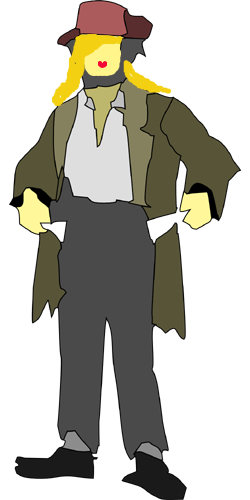 Are we aware of what it is to be homeless? Probably only if we are homeless or if we work with people who are homeless.
Are we aware of what it is to be homeless? Probably only if we are homeless or if we work with people who are homeless.
Are we blind to suffering? Probably only if we are not suffering.
These suppositions have to do with how aware we are when we are living a situation but how unaware we become when we are not. Think of having a baby. It’s very painful. Do I remember the pain? No, I remember the joy. Or think of being sick when we are not.
Do I remember being sick? Depends upon how long ago I was sick. For me, it was just the other day, and it was the kind of sick where I could see life’s end. But, the last time I had an ache, a pain, a cold where I was totally clogged is but a small memory since it happened so long ago.
THE CONCEPT OF HOMELESSNESS
How I began to think of being homeless had to do with asking my step-niece, who works with homeless and housing as the administrator of community housing in Austin, to do an interview. What also got me thinking was a young feral cat I was feeding who arrived as if she had just gotten lost from her inside home with a human. I found her a new home and was able to trap her and give her to the seemingly willing family. Due to some error in nurturing, she ran away from that family and has to start all over again making her way not to starve.
My feral cat responsibility started a few months back when the cross-the-street neighbor who had been feeding 3 cats for, at least, 10-15 years, moved. I didn’t know about ferals and was told by a cat person that feral cats who have become dependent upon humans most of their lives would starve if not fed. So I started to feed them. Not until the young one who arrived, got trapped by me and brought to a seemingly willing family, and, subsequently, ran away, did the idea of homelessness really start to weigh on me.
The feral cat situation is difficult. Neighbors fear disease and late night cat fighting. But, how can we let the dependent ones starve?
HUMANS WHO ARE HOMELESS
This brings us to humans who are homeless. I was first introduced to people who lived outside when I went to the beach every morning to teach class. There were always the few same people under blankets when I arrived, who would be gone and in town by the time I was ready to leave.
Why are people homeless? Don’t we have plenty of money in this country to provide for everyone? This reminds me of the reaction of a virtual techie I had hired who was at a university in his country of birth, India. He did not know the great United States had homeless. Or that the statistic is around 600,000 people, 2/3 of whom live in shelters. That’s 200,000 outside homeless, including 50,000 who are veterans.
The hard righties say that everyone should work, and people who are homeless have no reason to be there. The hard lefties say that we should provide for those who are homeless, no matter why. In the middle, we can look at why people are homeless which may impact what we think is the answer.
WHY HOMELESS
Most homelessness revolves around the almighty dollar.
Most homeless people get to the street, bench or field by some event that puts them over the line, such as losing a job, domestic abuse, becoming too sick to work, losing a loved one who no longer provides.
We know there are homeless because of sexual abuse or because some have lost limbs, eyes, mental capacity or emotional balance in the United States military and could wait no more for veterans’ organizations to exhaust their waiting lists. The street is there, and it is filled with people.
Shockingly, there are some people who prefer homelessness to making money as someone’s or some corporation’s minimum wage slave.
I had a student who chose to live under the pier because he said it was cheaper than having an apartment on his construction helper wage. Others prefer the idea for ethical reasons where they object to making money by manipulating others through crafty marketing designs and can find no other work. These two examples put a burden on the rest of us, yes.
This is in the United States? YES. Is it our responsibility to help our sisters and brothers and their children who are homeless with our money and our time? YES.
NOW WHAT?
Those of us who have homes are fortunate. Those of us who do not are not as fortunate.
I’m not faulting anyone for having a 20-room house or for being a maker of a money making life. Utilizing the self for financial gain is great. I’m only noticing homelessness and how far away it is from most of us who have homes. In turn, I am not faulting anyone for becoming homeless. For most, it is not a choice. Or, if it seemed revolutionarily glamorous at one time, people get stuck where they are.
I do think some of the makers in software design and writers of TV show plots can create some radical new housing scenario that serves the homeless as it serves the community. A great example of a creative group’s doing something is InfoExchange, a software company that won Google’s Impact Challenge in Australia. The company is building an app for homeless to connect them to all the shelter services on a nightly basis based on location.
CONCLUSION
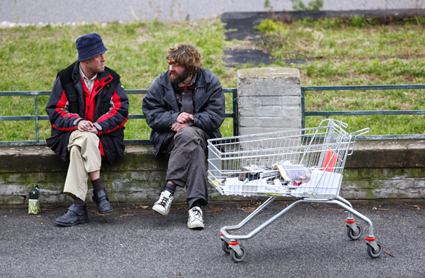 No matter who we are, we don’t want to be homeless. As George Carlin used to say,
No matter who we are, we don’t want to be homeless. As George Carlin used to say,
“I need a place to put my stuff.”
This very concept is why we see people walking around with shopping carts filled to the brim.
Whether we push carts that hold shiny new products we have just bought at a store or whether people who live outside are pushing them, we need a place to put our stuff.
Consider the good fortune of housing. May it teach us the patience to understand and help those who live on the street.
ACTION STEPS
1) Be kind to a homeless person, and know s/he could be you.
2) If you are a creative, consider creating a better way to connect people with housing.
3) Connect with a project in your local community that helps homeless.
![]()
![]()
If you wish to share your story, leave it as a comment under an article at http://warriorsofweight.com/issues. or even better, write your own article and put it up on a free wordpress site (https://wordpress.com), or post it on a social media site. Share yourself.
If you need habit help, check out warriorsofweight.com/consulting.
Know that you can reach out to a fellow human, probably to the person right next to you. If that interaction works out poorly, do it again. It’s worth it, since most people are nice and want to connect with you.
![]()
FEEDBACK
Please leave a comment below.
Please LIKE us on the website and at
WarriorsOfWeight on Facebook.
You can comment on Twitter @warriorsoweight.
Thanks.
![]()
DIANE GOLD, PUBLISHER AND AUTHOR
Diane Gold, Founder of Warriors of Weight, Turning Habits Into Health, has been a mentor in tai chi, kung fu and meditation, has been a music, fitness and stress expert, dedicated mom, studying peaceful conflict resolution, habit replacement and has been certified in plant-based nutrition.
She believes we can never be too kind. She says,
“Aside from the fact that we should care for each other, both the ugly and the beautiful, how would we want to be treated if we were homeless?
“There was a movie about a rich person being relegated to living in the street. He had learned to be resourceful by the nature of having such large responsibilities, but he got to see a side of life that many of us, more fortunate, will never see.
“We don’t know why someone is homeless, and we are not better than someone who is homeless. Although we may own the land on which the homeless sleep, this property ownership doesn’t mean we are better or spiritually richer or more worthy.
“Let us be kind. Not only because it could happen to us. Let us be compassionate and understanding because we are human and we are our sister’s keeper.
“Let’s take overall good care of each other and ourselves – including loving ourselves and our fellow beings at all costs – because we are all always worth it.”
![]()
EXERCISE OF THE WEEK:
LOOK AT A HOMELESS PERSON, AND REALIZE S/HE IS SOMEONE’S SISTER, BROTHER, MOTHER, FATHER, DAUGHTER, SON.

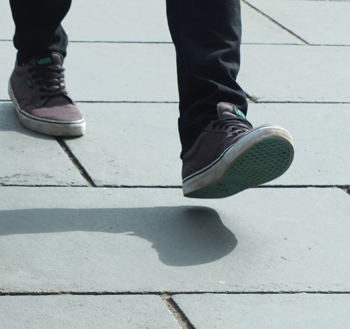 The secret of habit change is to step. No one’s saying it’s easy. I am saying it’s not complex. I don’t care how many times we’ve heard the idea that we have to believe in ourselves to motivate or have a positive mental attitude to get it done; it’s just not true. It may be an easier road, but that may not be our reality. And, once we step; we will believe and motivate.
The secret of habit change is to step. No one’s saying it’s easy. I am saying it’s not complex. I don’t care how many times we’ve heard the idea that we have to believe in ourselves to motivate or have a positive mental attitude to get it done; it’s just not true. It may be an easier road, but that may not be our reality. And, once we step; we will believe and motivate. The secret reality is that we can take a step even when:
The secret reality is that we can take a step even when: 3)
3)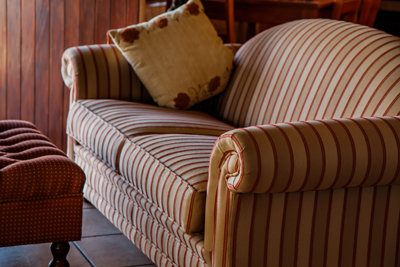 Motivation to change, self-belief, balance, pain and joy do not enter into these scenarios. Commitment to military protocol or a belief system has caused people to delay the object of addiction. More comfortable living conditions have caused people to delay getting the object of addiction. And finally, the concept of the thrill of receiving an increased amount of the object of addiction was an excellent motivator.
Motivation to change, self-belief, balance, pain and joy do not enter into these scenarios. Commitment to military protocol or a belief system has caused people to delay the object of addiction. More comfortable living conditions have caused people to delay getting the object of addiction. And finally, the concept of the thrill of receiving an increased amount of the object of addiction was an excellent motivator.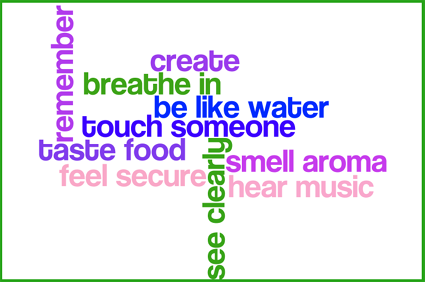
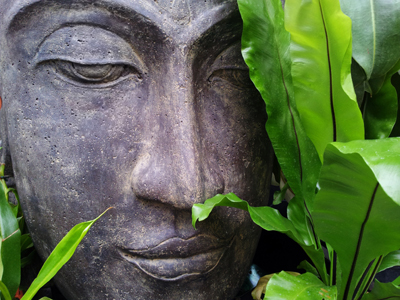 On every day that we awaken, we breathe in and breathe out. When we pay attention to the act of breathing, it is pretty fascinating. Imagine watching as we breath from inside our body. What a perspective.
On every day that we awaken, we breathe in and breathe out. When we pay attention to the act of breathing, it is pretty fascinating. Imagine watching as we breath from inside our body. What a perspective.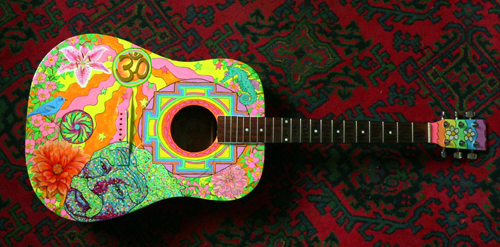 If we have our faculty of hearing, we can hear music. What’s great about this is that music can bring us to many special places. When I wanted to be pensive and sad, I listened to Sad Eyed Lady Of The Lowlands by Bob Dylan. When I want to dance, I turn on Progressive House Music and start dancing around the room, the street, the store. Yes, I’m the one with the headphones, pushing the shopping cart in rhythm to the music.
If we have our faculty of hearing, we can hear music. What’s great about this is that music can bring us to many special places. When I wanted to be pensive and sad, I listened to Sad Eyed Lady Of The Lowlands by Bob Dylan. When I want to dance, I turn on Progressive House Music and start dancing around the room, the street, the store. Yes, I’m the one with the headphones, pushing the shopping cart in rhythm to the music.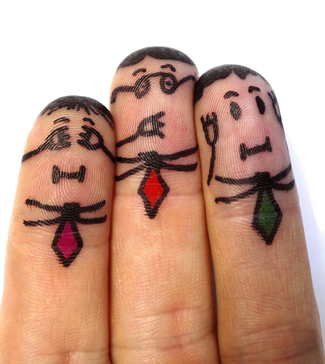
 For those of us who are fortunate enough to have sight, we get to view the world in all its color. It might not seem like much if we think that life sucks. But, we can close our eyes for a moment and honor the colors we see. When we open our eyes a minute later, we may be ready to rejoice. And the closing of our eyes while awake may help to see clearly in a place that does not suck.
For those of us who are fortunate enough to have sight, we get to view the world in all its color. It might not seem like much if we think that life sucks. But, we can close our eyes for a moment and honor the colors we see. When we open our eyes a minute later, we may be ready to rejoice. And the closing of our eyes while awake may help to see clearly in a place that does not suck. I just started appreciating smell more fully because I have become attracted to the smells of my super foods. Not everyone enjoys the same smell, yet, almost all of us have the ability to smell.
I just started appreciating smell more fully because I have become attracted to the smells of my super foods. Not everyone enjoys the same smell, yet, almost all of us have the ability to smell. The truth is when we think life sucks, we might not have anyone to touch. So, we have to do the next best thing. Marvel at the many parts of our that are sensitive to touch. That’s a lot of nerve endings.
The truth is when we think life sucks, we might not have anyone to touch. So, we have to do the next best thing. Marvel at the many parts of our that are sensitive to touch. That’s a lot of nerve endings. Even though we may think life sucks, we have the ability to bounce back from the feeling and start flowing. That’s another thing that’s so great about living. We can step out of our feeling sucky at any time and start to be like water. We can feel free as birds’ flying, snakes’ slithering, brooks’ babbling, people’s mingling. Even if we don’t do it because life sucks now, we have the ability.
Even though we may think life sucks, we have the ability to bounce back from the feeling and start flowing. That’s another thing that’s so great about living. We can step out of our feeling sucky at any time and start to be like water. We can feel free as birds’ flying, snakes’ slithering, brooks’ babbling, people’s mingling. Even if we don’t do it because life sucks now, we have the ability.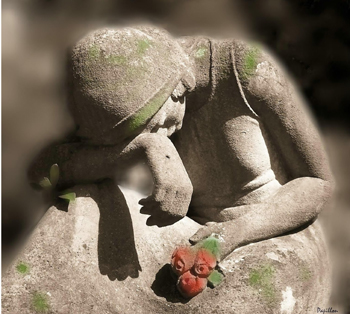 Recognizing 9 early warning signs of depression may sound like a thoughtless, insensitive question, uttered by someone who does not understand or is not experiencing depression. Let’s just say immediately that it takes extreme courage and focus to see ourselves, in general, and to see what is happening to us, in specific, while it is happening.
Recognizing 9 early warning signs of depression may sound like a thoughtless, insensitive question, uttered by someone who does not understand or is not experiencing depression. Let’s just say immediately that it takes extreme courage and focus to see ourselves, in general, and to see what is happening to us, in specific, while it is happening. When we are in a depression, we are not looking at it because we are busy experiencing it. We can think of living in a valley (a depression in the land) in much the same way. We are not looking at our lives from the perspective of mountain dwellers since we don’t live in the upland. Our perspective is from the point where we are, living in the lowlands, the valley.
When we are in a depression, we are not looking at it because we are busy experiencing it. We can think of living in a valley (a depression in the land) in much the same way. We are not looking at our lives from the perspective of mountain dwellers since we don’t live in the upland. Our perspective is from the point where we are, living in the lowlands, the valley.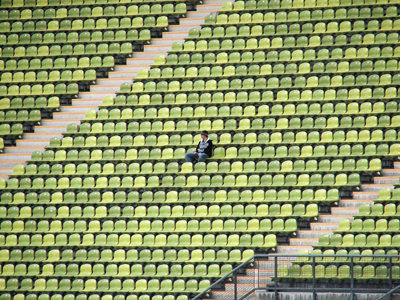 Little by little, we might see that we are spending more time at home, missing a little work here and there, having difficulty getting dressed to go out to socialize, going to lonely places. As with all actions, when we repeat them, they become more comfortable to do again. Kind of like tying a shoe or brushing our teeth.
Little by little, we might see that we are spending more time at home, missing a little work here and there, having difficulty getting dressed to go out to socialize, going to lonely places. As with all actions, when we repeat them, they become more comfortable to do again. Kind of like tying a shoe or brushing our teeth.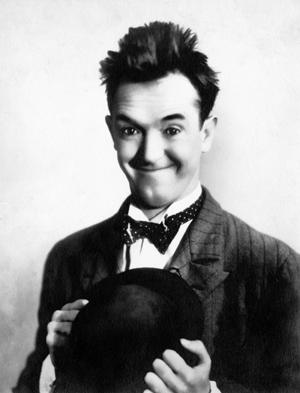 We may be comedians, making everybody laugh – which increases the lifespan of every laugher, and still be sad. It is, after all a great burden, to be the one commissioned to make everyone laugh. Much like the model or the beautiful actor is expected to be as perfect on camera as off, in case a photo is snapped at an off hour; so the comedian is expected to have a 24/7 smile. We may be parents with kids who sometimes hide our feelings so that we don’t burden the family with our doom.
We may be comedians, making everybody laugh – which increases the lifespan of every laugher, and still be sad. It is, after all a great burden, to be the one commissioned to make everyone laugh. Much like the model or the beautiful actor is expected to be as perfect on camera as off, in case a photo is snapped at an off hour; so the comedian is expected to have a 24/7 smile. We may be parents with kids who sometimes hide our feelings so that we don’t burden the family with our doom.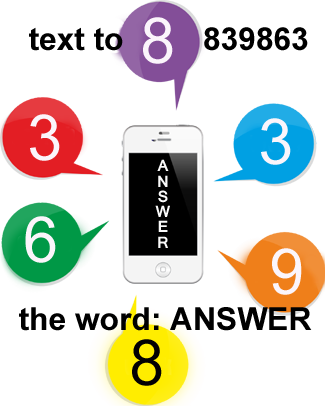
 Think of a one-inch square made up of 72 red squares, kind of like a crossword puzzle. And every day, for the next 72 days, one of those red squares turns light red. All of a sudden, in 72 days, the entire square is light red, and we may not have noticed it. That’s the subtle change.
Think of a one-inch square made up of 72 red squares, kind of like a crossword puzzle. And every day, for the next 72 days, one of those red squares turns light red. All of a sudden, in 72 days, the entire square is light red, and we may not have noticed it. That’s the subtle change. Since most of us will not reach out when we are in dire straits, because we are too depressed to do so, decide to be on the lookout on behalf of others. All of us have the responsibility.
Since most of us will not reach out when we are in dire straits, because we are too depressed to do so, decide to be on the lookout on behalf of others. All of us have the responsibility. 4) RUN TO THE LOCAL STORE OR CAFE TO HAVE HUMAN CONTACT
4) RUN TO THE LOCAL STORE OR CAFE TO HAVE HUMAN CONTACT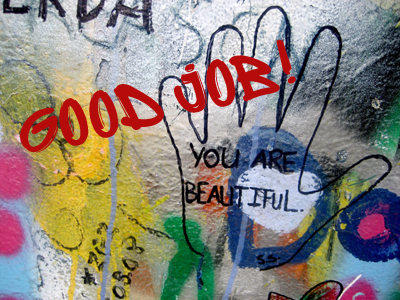
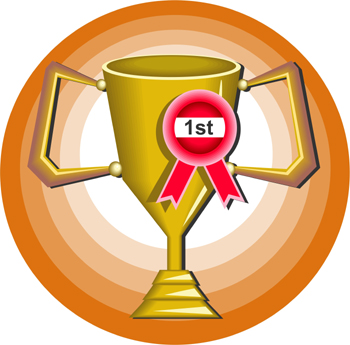 When the preacher or leader of our chosen group discourses that our particular congregation of members is loved more than other religious groups, we are refining how we see the world. Our ego becomes falsely inflated with the knowledge that we are in a special tribe which means we have been taught that there are other tribes less worthy. We have been lifted up while others have been lowered.
When the preacher or leader of our chosen group discourses that our particular congregation of members is loved more than other religious groups, we are refining how we see the world. Our ego becomes falsely inflated with the knowledge that we are in a special tribe which means we have been taught that there are other tribes less worthy. We have been lifted up while others have been lowered.
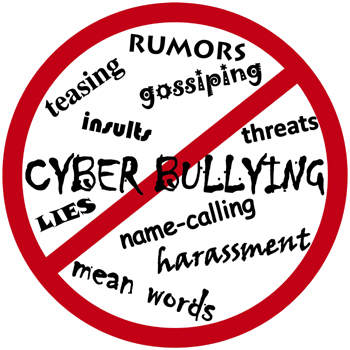 Anyone who teases, bullies, insults people with lesser intellectual capacity, less expensive clothing, a physical imperfection, is doing it to inflate the ego. It serves no other purpose. This has come out of the original “good job” that was uttered way back when to encourage us along into the competitive world. This simple statement or one like it started our competition engine, but competition is not the culprit here. It what we were supposed to learn along with this concept.
Anyone who teases, bullies, insults people with lesser intellectual capacity, less expensive clothing, a physical imperfection, is doing it to inflate the ego. It serves no other purpose. This has come out of the original “good job” that was uttered way back when to encourage us along into the competitive world. This simple statement or one like it started our competition engine, but competition is not the culprit here. It what we were supposed to learn along with this concept. It what we were supposed to learn along with this concept.
It what we were supposed to learn along with this concept.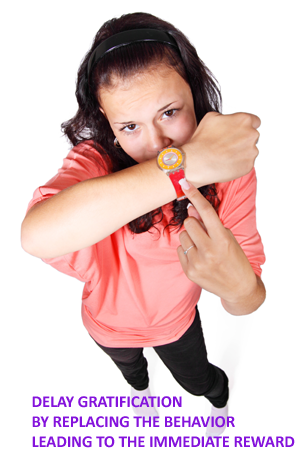 When we delay gratification, we use one skill which allows self-control: we replace the behavior that would have led us to the immediate reward. Whether we are young children or adults, it is the same strategy. Whether we can throw ourselves deeply enough into a new activity to control our behavior is different for everyone.
When we delay gratification, we use one skill which allows self-control: we replace the behavior that would have led us to the immediate reward. Whether we are young children or adults, it is the same strategy. Whether we can throw ourselves deeply enough into a new activity to control our behavior is different for everyone.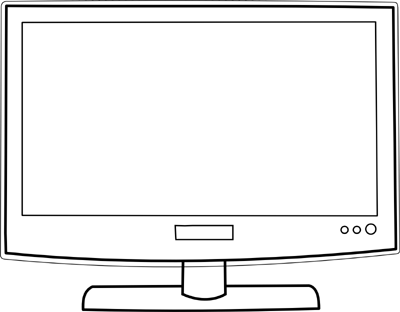
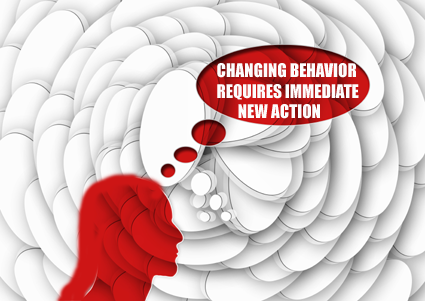
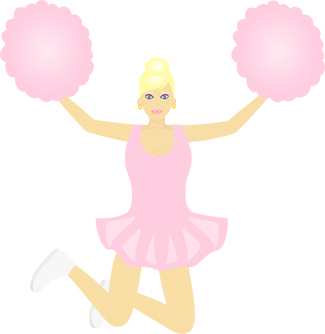 The biggest downfall in the ability to delay gratification happens in the first 10 to 30 seconds after we have an urge: we haven’t planned for our replacement behavior or we need a cheerleading team to provoke our behavior change and don’t have one. We have ourselves. Of course, the goal is for us to create this gallery of cheerers within ourselves so that we can do what is best for our lives, immaterial of what our hormones tell us to do. This may take time.
The biggest downfall in the ability to delay gratification happens in the first 10 to 30 seconds after we have an urge: we haven’t planned for our replacement behavior or we need a cheerleading team to provoke our behavior change and don’t have one. We have ourselves. Of course, the goal is for us to create this gallery of cheerers within ourselves so that we can do what is best for our lives, immaterial of what our hormones tell us to do. This may take time.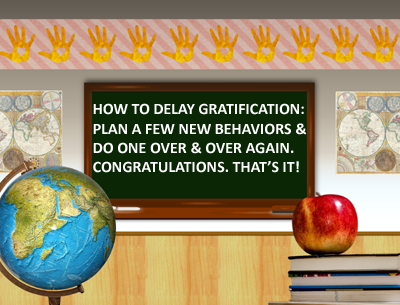
 Recently, I learned a big lesson, or, rather, I was reminded of an old lesson that I believe is as inherent as our survival instincts which lead us to an eye for an eye. I was asked to help a friend use the punishment system on her child. I did not look at the end results of this situation that was spinning out of control. But, I said I’d lend a hand. Not until the punishment I helped to deliver was hijacked by intervention from the other parent did I realize I was acting out of my belief system and into a system which lacks cooperation and respect.
Recently, I learned a big lesson, or, rather, I was reminded of an old lesson that I believe is as inherent as our survival instincts which lead us to an eye for an eye. I was asked to help a friend use the punishment system on her child. I did not look at the end results of this situation that was spinning out of control. But, I said I’d lend a hand. Not until the punishment I helped to deliver was hijacked by intervention from the other parent did I realize I was acting out of my belief system and into a system which lacks cooperation and respect.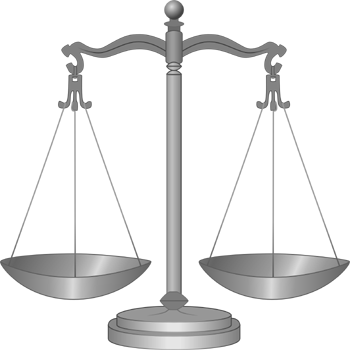 We’ve spoken before about habits that are internal, such as addiction to cocaine, and external, such as the habit of punishment and feeling powerful from this technique. In this case, I agreed to use the deprivation method of behavior to restore order, that is, the taking away of a freedom to maintain discipline. There is a better way.
We’ve spoken before about habits that are internal, such as addiction to cocaine, and external, such as the habit of punishment and feeling powerful from this technique. In this case, I agreed to use the deprivation method of behavior to restore order, that is, the taking away of a freedom to maintain discipline. There is a better way.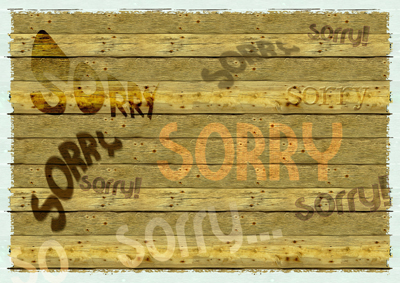 When someone commits a crime and shows remorse; we are often eager to lend an ear, show mercy, wish for a small consequence with special privileges for this person and label the person a regular one who made a mistake.
When someone commits a crime and shows remorse; we are often eager to lend an ear, show mercy, wish for a small consequence with special privileges for this person and label the person a regular one who made a mistake.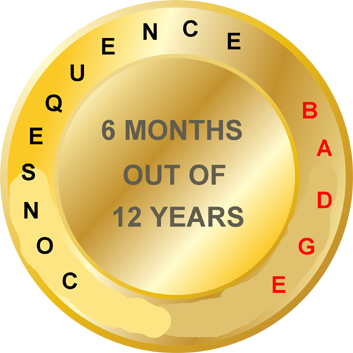
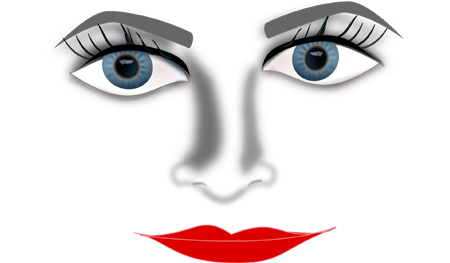 A new study conducted in Ontario at McMaster University by Mark Tarnopolsky (MD, PhD) and his team came up with something astounding: that exercise can rejuvenate the skin.
A new study conducted in Ontario at McMaster University by Mark Tarnopolsky (MD, PhD) and his team came up with something astounding: that exercise can rejuvenate the skin.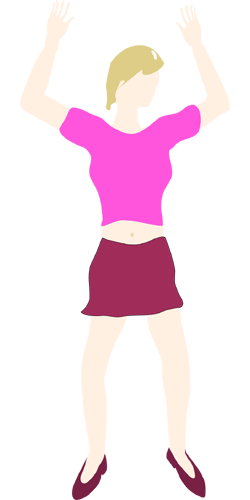 So Tarnopolsky and team did testing on a group of 29 men and women, ages 20 to 84. About half were active, doing three hours of workout per week. The other half did less than one hour a week. So the team examined skin on the butt, since that area would have less sun damage.
So Tarnopolsky and team did testing on a group of 29 men and women, ages 20 to 84. About half were active, doing three hours of workout per week. The other half did less than one hour a week. So the team examined skin on the butt, since that area would have less sun damage. To factor in whether lifestyles and diet made the difference, they took another sample of individuals for study. They put a group of previously sedentary people, 65 years and older, to exercise after first sampling their skin, which looked average for their age. They did a routine of jogging or cycling for 30 minutes two times a week for three months. At the end of this period, their skin measured that of 20- to 40-year-olds.
To factor in whether lifestyles and diet made the difference, they took another sample of individuals for study. They put a group of previously sedentary people, 65 years and older, to exercise after first sampling their skin, which looked average for their age. They did a routine of jogging or cycling for 30 minutes two times a week for three months. At the end of this period, their skin measured that of 20- to 40-year-olds. I stepped out the other night because I promised a friend I’d meet her at a bar for people over 60 with music from the 1950s and 60s. Since I don’t drink because I don’t drink just two, I was able to observe the crowd. What I was not prepared for was the amount of people, both men and women, who had had injection procedures to make the face look less wrinkly.
I stepped out the other night because I promised a friend I’d meet her at a bar for people over 60 with music from the 1950s and 60s. Since I don’t drink because I don’t drink just two, I was able to observe the crowd. What I was not prepared for was the amount of people, both men and women, who had had injection procedures to make the face look less wrinkly.
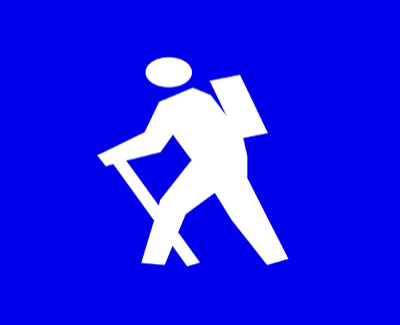 This will get you moving and creating your own health through exercise. From your inner self out to the world.
This will get you moving and creating your own health through exercise. From your inner self out to the world.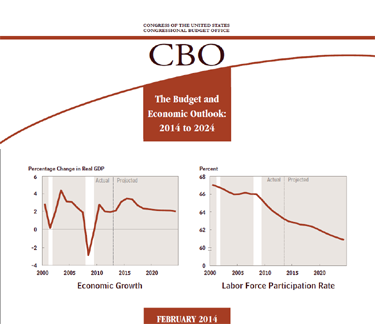 The Health Care Law Is Projected To Shrink The Work Force. This headline looks at full-time workers in an estimate from the Congressional Budget Office. According to Jason Furman, Council Of Economic Advisors Chairman, the change in number of workers has to do more with people’s choosing part-time assignments rather than that employers are deleting jobs to avoid employee’s health insurance costs.
The Health Care Law Is Projected To Shrink The Work Force. This headline looks at full-time workers in an estimate from the Congressional Budget Office. According to Jason Furman, Council Of Economic Advisors Chairman, the change in number of workers has to do more with people’s choosing part-time assignments rather than that employers are deleting jobs to avoid employee’s health insurance costs. Certainly, we are bound to contribute to humanity in a way that sustains us in some financial way and in order to leave a personal human legacy. We don’t have to get it by having a J-O-B in an environment, where group health care was the only reason we took the job. We can be CRE-8-TIVE and do what we love, which, for most people, is not what they do at their J-O-B. They can be small business owners, putting them in a category to be able to pay for themselves, but out of the headlined category: full-time W-2 worker, about whom the CBO is estimating.
Certainly, we are bound to contribute to humanity in a way that sustains us in some financial way and in order to leave a personal human legacy. We don’t have to get it by having a J-O-B in an environment, where group health care was the only reason we took the job. We can be CRE-8-TIVE and do what we love, which, for most people, is not what they do at their J-O-B. They can be small business owners, putting them in a category to be able to pay for themselves, but out of the headlined category: full-time W-2 worker, about whom the CBO is estimating. There is so much creative energy that we all possess that is channeled by some into entrepreneurship. The people in this division make some of the breakthroughs that make our country great and make us happy Americans. We are thriving spiritually because of choices like entrepreneurship. Yes, there are just as many, if not more people who have that same spark of invention who don’t make a living at it and struggle. But they deserve the time to keep working at it.
There is so much creative energy that we all possess that is channeled by some into entrepreneurship. The people in this division make some of the breakthroughs that make our country great and make us happy Americans. We are thriving spiritually because of choices like entrepreneurship. Yes, there are just as many, if not more people who have that same spark of invention who don’t make a living at it and struggle. But they deserve the time to keep working at it. It’s fair to say that what keeps us happy and healthy is our own personal foundation. When we have a belief system or a set of ethics by which we live; this drives us to do act the way we do and make the decisions that we do.
It’s fair to say that what keeps us happy and healthy is our own personal foundation. When we have a belief system or a set of ethics by which we live; this drives us to do act the way we do and make the decisions that we do. The Health Care Law aka The Affordable Care Act aka Obamacare is part of the legacy of Barack Obama, 44th President of the United States. It allows for people previously uninsurable due to health issues to be insurable. It allows for people who could not afford health insurance to be subsidized enough to get it.
The Health Care Law aka The Affordable Care Act aka Obamacare is part of the legacy of Barack Obama, 44th President of the United States. It allows for people previously uninsurable due to health issues to be insurable. It allows for people who could not afford health insurance to be subsidized enough to get it. Finally, it seems as if freedom of choice is the reason for the shrinking employee headline. We’re all different. There’s no one way to be. And, through the ACA, the United States has just happily extended our freedom.
Finally, it seems as if freedom of choice is the reason for the shrinking employee headline. We’re all different. There’s no one way to be. And, through the ACA, the United States has just happily extended our freedom. We develop habits based on how certain actions make us feel. Whether we wear designer clothes, keep our hair immaculate or stay fit because we enjoy people’s staring at us; we act out behaviors regularly to achieve these good feelings, aka rewards. The cue, which is the original feeling that makes us do a behavior urges us to work so we have access to buy clothing, get our hair done, so we look how we like. This urge also pushes us to work out so that our bodies look good, which gives us the end result: the reward of having people acknowledge our beauty. Appearance
We develop habits based on how certain actions make us feel. Whether we wear designer clothes, keep our hair immaculate or stay fit because we enjoy people’s staring at us; we act out behaviors regularly to achieve these good feelings, aka rewards. The cue, which is the original feeling that makes us do a behavior urges us to work so we have access to buy clothing, get our hair done, so we look how we like. This urge also pushes us to work out so that our bodies look good, which gives us the end result: the reward of having people acknowledge our beauty. Appearance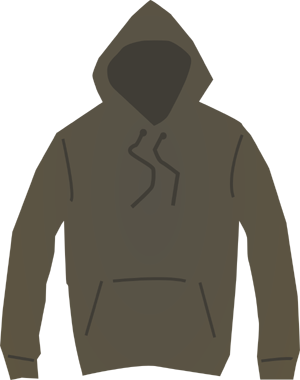 These are only examples of appearance habits we may have. There are others of us who specifically wear clothing to make us invisible, since we don’t like it when people stare. And there are others of us who do not consider what people think; they are busy with their own lives and work.
These are only examples of appearance habits we may have. There are others of us who specifically wear clothing to make us invisible, since we don’t like it when people stare. And there are others of us who do not consider what people think; they are busy with their own lives and work.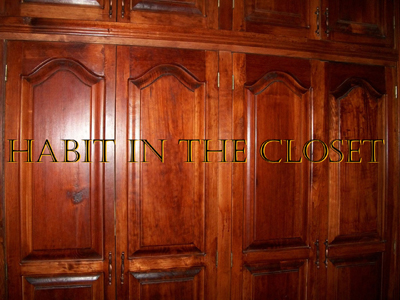 When we choose to change one of our habits, we replace the habit that was there with a new one. The old one is still there, but it is a “habit in the closet,” so to speak. As long as we are doing a new behavior and not opening the closet, the habit will stay put. For as long as we choose. Habit In The Closet
When we choose to change one of our habits, we replace the habit that was there with a new one. The old one is still there, but it is a “habit in the closet,” so to speak. As long as we are doing a new behavior and not opening the closet, the habit will stay put. For as long as we choose. Habit In The Closet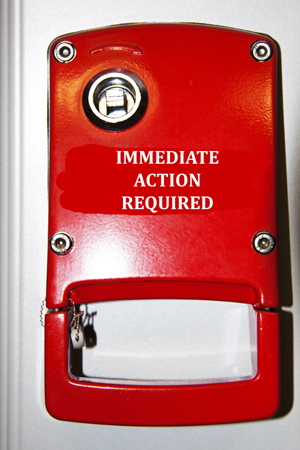
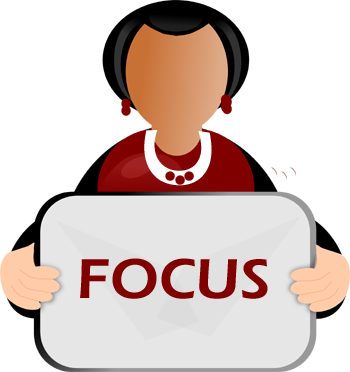
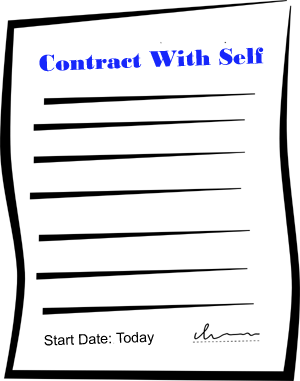 1)
1)